
Checkweigher Systems
High performance weighing solutions for all industries
MID certified dynamic industrial conveyor checkweighing solutions offering inline quality control checks while helping manufacturers meet compliance with weights & measures regulations. Ideal for industries such as meat, poultry, and seafood, pharmaceutical, cosmetic, ready meal, bakery, baby food and more!
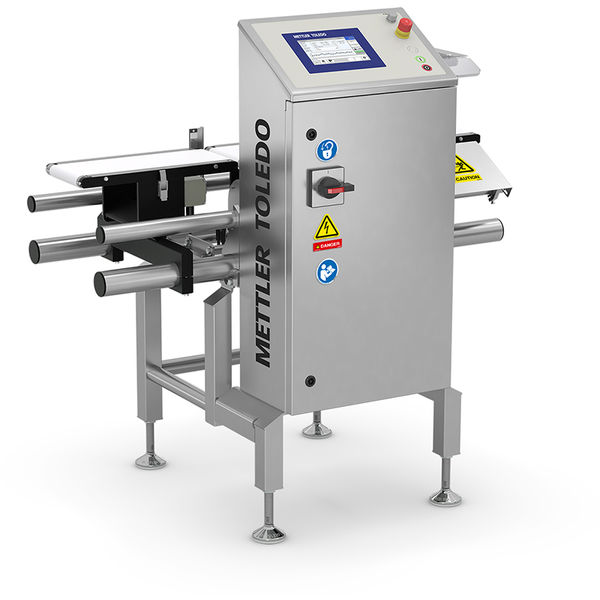
C31 StandardLine Checkweigher
Accessible, user-friendly checkweigher. Ideal for replacing manual spot checks for efficient compliance. Its compact and modular design enables seamless integration and scalability as small to midsize food and non-food manufacturers expand.
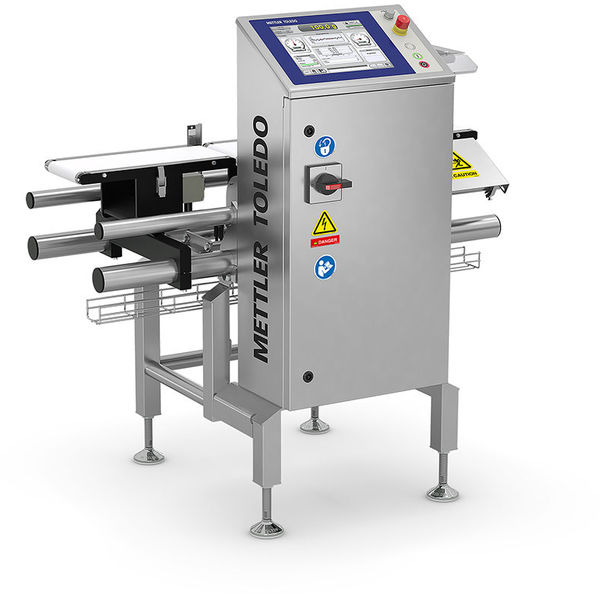
C33 PlusLine Checkweigher
Flexible mid-level checkweigher for standard weighing applications featuring advanced FlashCell™ EMFR technology. Achieve high accuracy at throughputs up to 350 ppm for food and non-food applications in dry, wet and harsh environments.
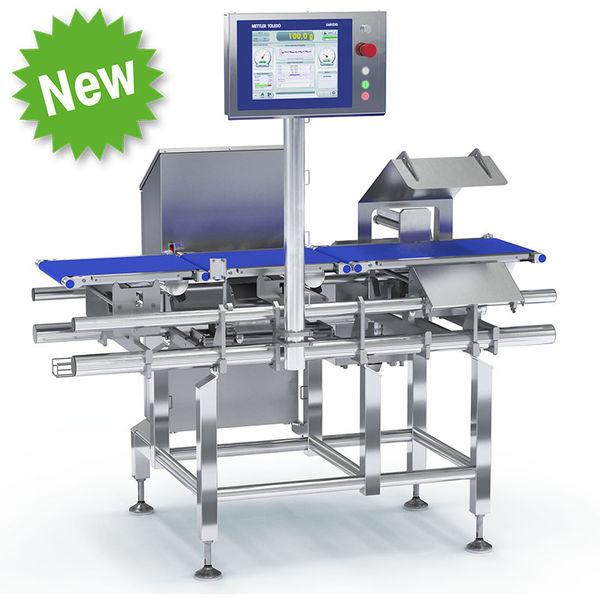
C33 PlusLine WD Checkweigher
Combines reliable weighing accuracy with rugged machine design for harsh production environments. The system, including the HMI, is IP69 rated and proven to be resistant to most caustic detergents and high-pressure cleaning.
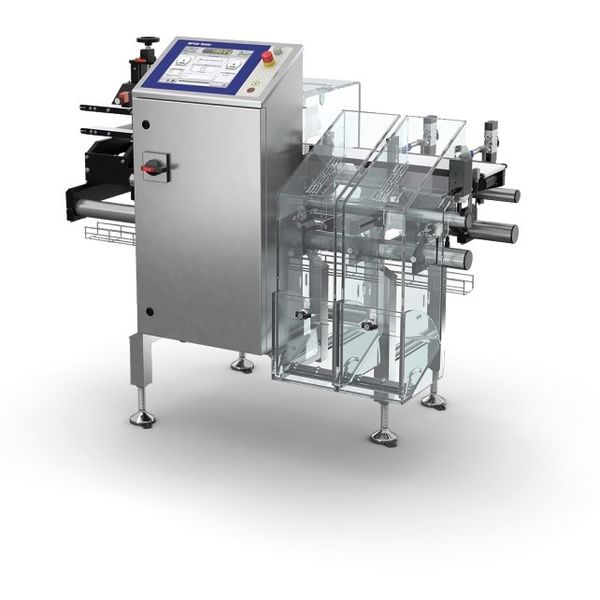
C33 PlusLine Pharma Checkweigher
Dynamic checkweigher with options to support pharmaceutical regulatory compliance, enhanced brand protection and FDA 21 CFR Part 11 functionality to support stringent quality control.
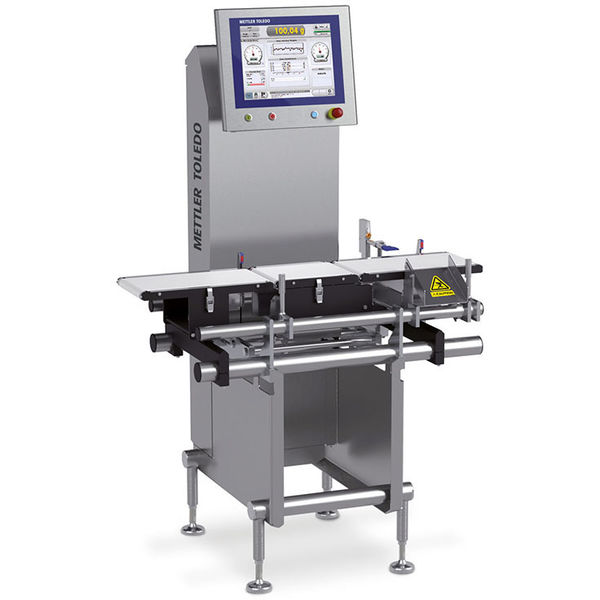
C35 AdvancedLine Checkweigher
High performance checkweigher suitable for challenging weighing applications. Advanced FlashCell™ EMFR technology delivers maximum accuracy at throughputs up to 800ppm. The modular design offers customization to effectively handle any package type.
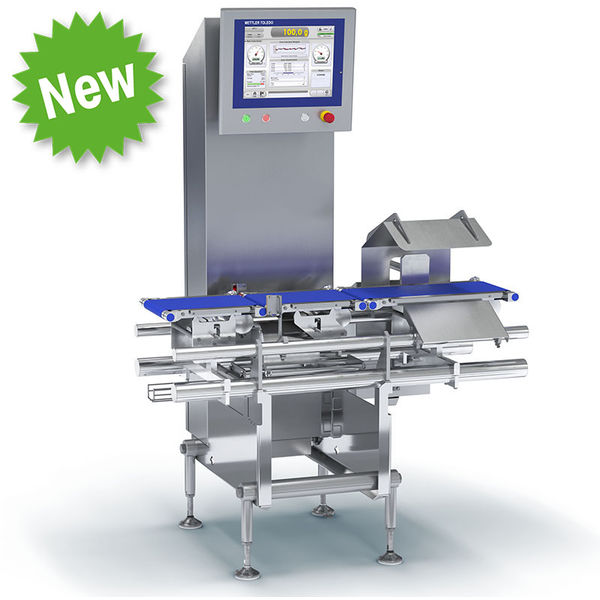
C35 WD Inspection System
Built for harsh environments, to withstand high-pressure cleaning. The C35 combines very high precision at fast speeds with a stable and resilient system design. The entire system is IP69 rated and proven to be resistant to most caustic detergents.
Maximize Your Return on Investment with Professional Service Solutions
Maximize Your Return on Investment with Professional Service Solutions
New Remote Support
Keeping Your Production Running
In addition to our existing 24/7 technical phone support, we offer the latest in remote service support using Augmented Reality (AR) technology. This allows us to provide the quick expert support you need to achieve your productivity goals.
Our METTLER TOLEDO augmented reality-powered visual remote assistance solution helps us to fully understand your service issues. Using a mobile device with an integrated camera enables us to see exactly what you see. We can guide you step-by-step to resolve the issue by providing real-time contextual assistance, such as adding text, drawings, or highlighting objects with 3D markers. Benefit from the fastest fault diagnostics, repair, and part replacement support by using the latest technology. We can also remotely connect to some of our products for additional service enhancement. Please contact your local service team for more details.
Explore our Services
Uptime. Support & Repair
Performance. Maintenance & Optimization
Compliance. Calibration & Quality
Expertise. Training & Consulting
FAQs
What is a checkweigher?

A checkweigher is a high-precision weight measuring instrument, designed to check the weight of individual products, usually on a conveyor, on production lines during the manufacturing process.
Industrial checkweighers are predominantly used as part of a manufacturing quality control program. Using them in production facilities is often used to show compliance with local or global packaging laws and regulations.
An inline industrial checkweigher checks that each package is the correct weight as it moves through a production line. They are key to providing confidence that manufacturers are delivering quality products, promoting high levels of customer satisfaction. Selling underweight products can result in fines, recalls, or other penalties. Overweight products can generate unnecessary waste and expensive product giveaway. Industrial checkweighers can be used in most industries as part of an effective quality assurance system for:
- Food industry quality inspection
- Pharmaceuticals (pharma industry quality inspection)
- Cosmetics and personal care quality inspection
- Beverage industry quality inspection
- Transport / logistics
- Quality inspection of chemicals - including liquids, solids or powders
- Automotive
- Metal manufacturing and fabrication industries
What are the components of a checkweigher?
A typical checkweighing system is made up of:
- An infeed section (how the product is transferred to the checkweigher)
- A weighing section with weighing / load cell
- An outfeed section with sorting / rejecting device for products that don't meet pre-set specifications
- User interface for inputting specifications and checking results
- A solid and vibration minimizing frame - these can be built to stand up to a variety of environmental factors
There are many different checkweigher designs in common use. The components used to construct a checkweigher will vary in detail depending on how they are used. The characteristics of the items being weighed and their surrounding environment are also have a strong impact on the design.
What are the differences between a static and a dynamic checkweigher?
The main differences between static and dynamic checkweighers are:
- Static checkweighers measure the weight of products that stand still. Dynamic checkweighers weigh products in motion, on a checkweighing conveyor.
- Static checkweighers are used for manual weighing of products or for sample spot-checking. Dynamic checkweighers automatically check 100% of the products produced.
- Static checkweighing is a labor-intensive process. It requires manual product weighing, recording of the result and then product removal for the next weighing procedure. Dynamic checkweighing is entirely automatic. Products are weighed as they pass along a conveyor on a production line, with off-weight products rejected from the production line by automated removal devices such as pneumatic pusher arms or air-jets.
Static Checkweighers
- Bench scales, used for manual weight control and portioning of products or for sample-spot checking
- Designed to allow a fast and accurate weighing and portioning process
- Available in numerous variations and sizes for ergonomic working procedures
- Allow integration into data management systems for data tracking and analysis
- Fast and convenient label printing
Dynamic Checkweighers
- Weigh products in motion (i.e., checkweighers with conveyors)
- Automatically check the weight of 100% of the products
- Performing sample tests for net weight and tare weight reports that satisfy Weights & Measures compliance requirements and Weights & Measures package tare weight verification reports
Both static and dynamic checkweighers are to be found in most production environments, with static checkweighers commonly determining target weights for dynamic checkweighers.
The choice of type of checkweighing system used on a production line is usually determined by application requirements and processes.
Why should I use an inline industrial checkweigher in my production?
Industrial checkweighers have long been a key element of production operations, as they are capable of far more than just weighing, and can actually optimize your entire production process. Benefits of implementing an industrial checkweighing solution:
- Avoid costly fines with 100% weight inspection
- Keep fillers operating in synchronization
- Save on wasted materials, allowing for the production of more products, leading to higher profits
- Improve production processes and equipment efficiency
- Save labor and personnel costs
- Reduce false rejects and rework
- Maintain the identity of your brand
In addition, an industrial checkweigher can effectively improve your overall equipment efficiency (OEE) and thus reduce your total cost of ownership (TCO).
Which checkweigher manufacturer should I use?
METTLER TOLEDO offers standard and highly customized checkweighing solutions that are built to suit your specific applications and environment, as well as your regulatory and industry requirements.
We deliver productivity and profitability with our comprehensive line of checkweighers for food and beverages, checkweighers for pharmaceuticals, checkweighers for chemical products and checkweighing for other non-food industries.
A wide range of sizes and configurations (such as multi-lane checkweighers, different sorting and rejecting devices, and a variety of belt designs and product guiding systems) are available to handle nearly any container type or package design, even at high production rates, to provide accurate product delivery, reduced giveaway, and optimized production processes.
The innovative dashboard-style controls and intuitive multi-lingual operator interface make product set-up and changeover fast and error-free, to ensure maximum uptime and productivity. Optional harsh washdown design up to IP69k and integrated metal detection and x-ray technology complete the impressive features of the METTLER TOLEDO checkweighing product portfolio.
- Automated Checkweighers for Snacks and Confectionery
- Bakery Checkweighing for Quality Inspection
- C2 Series High-Load Checkweighers
- Checkweigher for Packed & Unpacked Food
- Checkweighers for Dairy Production
- Checkweighers for High / Heavy Loads
- Checkweighers for Pet Food
- Checkweighers for Ready Meals
- Cosmetics Checkweighers
- Dry Environment Checkweighers
- Dynamic Checkweighers
- Food Checkweighers
- Garvens Checkweighers
- Harsh Environment Checkweighers
- Hi-Speed Checkweighers
- High-Performance Checkweighers
- Hygienic Checkweighers
- In-Motion Checkweighers
- Inline Checkweighers
- IP69 Checkweighers
- Meat and Poultry Weight Control
- Pharmaceutical Checkweighers
- Precision Checkweighers
- Washdown Checkweighers






